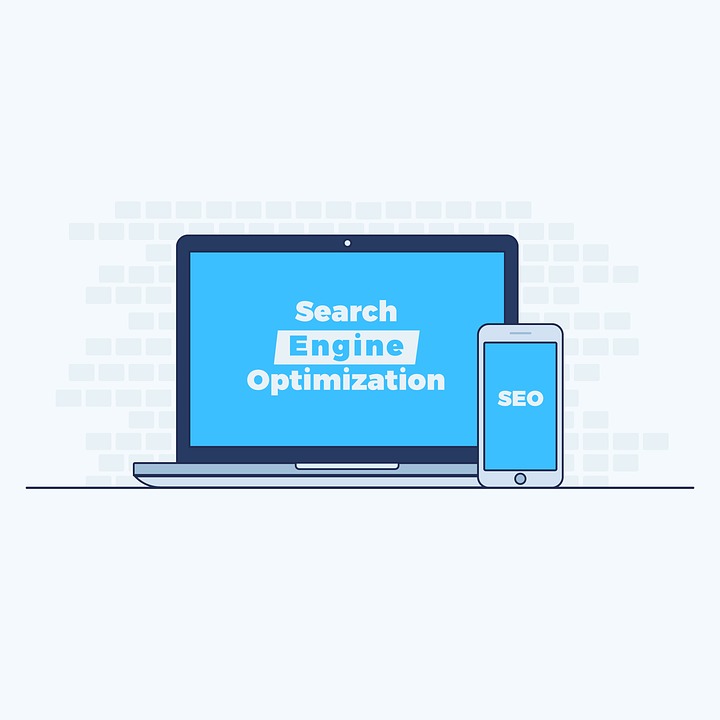Local search engine optimization or local SEO focuses on improving a business’s ranking in local search results. Half of Google searches are for local information, so it is imperative that your business be optimized for local search. Local search results usually include searches with criteria such as “near me” or “in Texas”.
Google is also smart enough to determine if there are geographic restrictions for a search term. For example, if someone searches for “pizza shops,” Google will infer that the searcher is looking for pizza shops near them.
As researchers change the way they use search engines, local SEO becomes even more important. Since the early 2010s, searches involving “near me” on mobile have grown steadily, and the trend doesn’t seem to be slowing anytime soon. With more searches being done on mobile devices, users often aren’t looking to visit a website to find basic information. With local SEO, they can see your business name, contact information, hours, reviews, and more right on the results page.
So where do these local businesses appear in search results? Local Package, Google My Business and Organic Results. Local Pack and Google My Business are prominent menus located at the top and right of the search results page. Local SEO also affects your ranking in the main search results within the local package.
What is the difference between local SEO and local SEO?
SEO supports your website’s ability to rank in national or global search. Local SEO supports your website’s ability to rank on local search terms. There is often a difference between the two in the audience. Local SEO often affects searchers who are searching for a product or service in their immediate geographic area. Non-local SEO affects researchers who conduct research. Many strategies overlap and can support both local and non-local organic classification.
Who Needs Local SEO?
Simply put, if your business serves a specific geographic area, you need to be present in local search and you need to work on local SEO.
Why is local SEO important?
With high intent and ready to buy
Local search has a much higher intent to convert than non-local searches. Local researchers are also geographically pre-qualified. So it is not surprising that local searches convert 80% more than non-local searches. When someone is looking for a pizzeria near me, they are almost certainly looking for a pizzeria to eat at in the near future. The goal is to appear in the SERP for local searches.
Affordable, affordable, affordable
Local SEO is a cost-effective way to increase your business’ presence in local searches. Most local business listings are free — Google, Facebook, Yelp, etc. — and relatively easy to maintain. Many local businesses have found success by investing their time in local SEO versus paid campaigns.
Competition
Local search optimization makes your business more competitive. There is a good chance that your competitor has already invested time and money into their own local SEO strategy. To test this out, you can do a simple search on your business type and city. For example, “Pizza Shop Tehran”. Who comes first in the results? Do others rate your work higher? Chances are, competitors are investing in their own local SEO.
How to improve local seo
Local search optimization is a relatively easy process that any company can do on their own or with the support of an agency.
Google for my business
Google My Business is a free business directory with Google. The list is displayed on the right side of the search results pages and is shown mostly for branded searches. These directories include basic business information such as the business name, website URL, address, phone number, and products or services.
The listing also allows the owner to upload photos, update business hours, post upcoming announcements or news, and collect and respond to comments. Your Google My Business profile accounts for 25% of the ranking factor in Google’s local algorithm when determining which business to display in the local package.
The Google My Business listing essentially provides one place for searchers to find key information about your business without having to visit your website. Considering that the user may not be visiting your site, it is important that your listing information is not only accurate, but also valuable and eye-catching.
Bing also has a similar business directory called Bing Places for Business. Fortunately, you can connect your Google My Business profile to your Bing profile to remove the data. This saves you from creating and optimizing two lists.
local quotes
A local citation is any online mention of your local business name, address, and/or phone number. These citations can have a positive or negative impact on your search rankings and how potential clients find your work. Local citations account for 8-10% of Google’s local SEO ranking factors.
It is important that all citations are accurate and consistent to show Google that your site is trustworthy. Often, companies are not even aware of all the local citations that exist for their business, and those citations are inaccurate. Incorrect citations should be corrected to protect search rankings, reputation, and customer experience.
Citation cleanup can be a time consuming manual process depending on the number of citations and what the citations are. This is where working with an agency comes in handy because we have citation management tools that will save you time and help improve your local rankings.
Local directories and backlinks
One of the basic principles of SEO is the number of quality sites that link to your site. In the case of local SEO, these referral sites can be local sites and directories focused on supporting local search rankings. Beyond rankings, improving your presence in these directories means your work can be found by a broader audience of local searchers.
Each city has business listings where your business can be listed. Most of these directories are free and local. Some popular directories include Facebook, LinkedIn, Yelp, Local.com, Yellow Pages, and Angie’s List. Similar to local citations, it is important that your business information is true and accurate on all directory listings and referring sites.
Many directory sites allow users to write their own reviews. Google takes these reviews into account, especially on the Google My Business platform, when selecting companies to display in local package and organic ratings.
Not all backlinks and referral domains are good. Google is starting to pay more and more attention to what it calls “toxic backlinks”. If the websites that refer to your site have a high toxicity, it will negatively affect your ranking.
Search for local keywords
Keywords can vary greatly between geographic regions and local audiences. It is important to conduct keyword research for each geographic region to determine which keywords will support local rankings for each region. For example, an insurance agency in Oklahoma has an entirely different set of keywords for hurricane damage coverage than an agency in Florida. This keyword research helps improve website content and landing pages for local search rankings.
Website content, on-page optimization
Does your website contain site-specific content? For example, if you build custom homes in the Pittsburgh area, is it clear in your website content that you only serve the Greater Pittsburgh area? Something as simple as optimizing your website and making sure your content includes your geographic location can be very effective in local search rankings. The items on the page can also be optimized for local search.
Including geography in your page title and meta description can help a lot with your local SEO. If your business has multiple locations, each location can be optimized for its own local search results. In this example, many companies create local landing pages with site-specific language, service offerings, etc., to rank locally.
How to check your local SEO
While rankings are highly dependent on where each searcher is at at the time, local SEO efforts can be measured across multiple platforms. Here are some criteria to consider.
- local search ranking
- Queries
- Organic traffic by location
- Convert from organic search
- indicated local traffic
- Customer comments
- phone clicks
As with any marketing endeavor, it is important to establish a local SEO baseline. This gives your team something to compare their efforts and helps identify future opportunities for improvement.
With more and more mobile searches being done on the go, local search is becoming more and more important to businesses. Fortunately, local SEO can be controlled and measured. The key is to find a digital marketing agency that understands the importance of search engine optimization and how to use it to achieve your business goals.








Leave a Comment